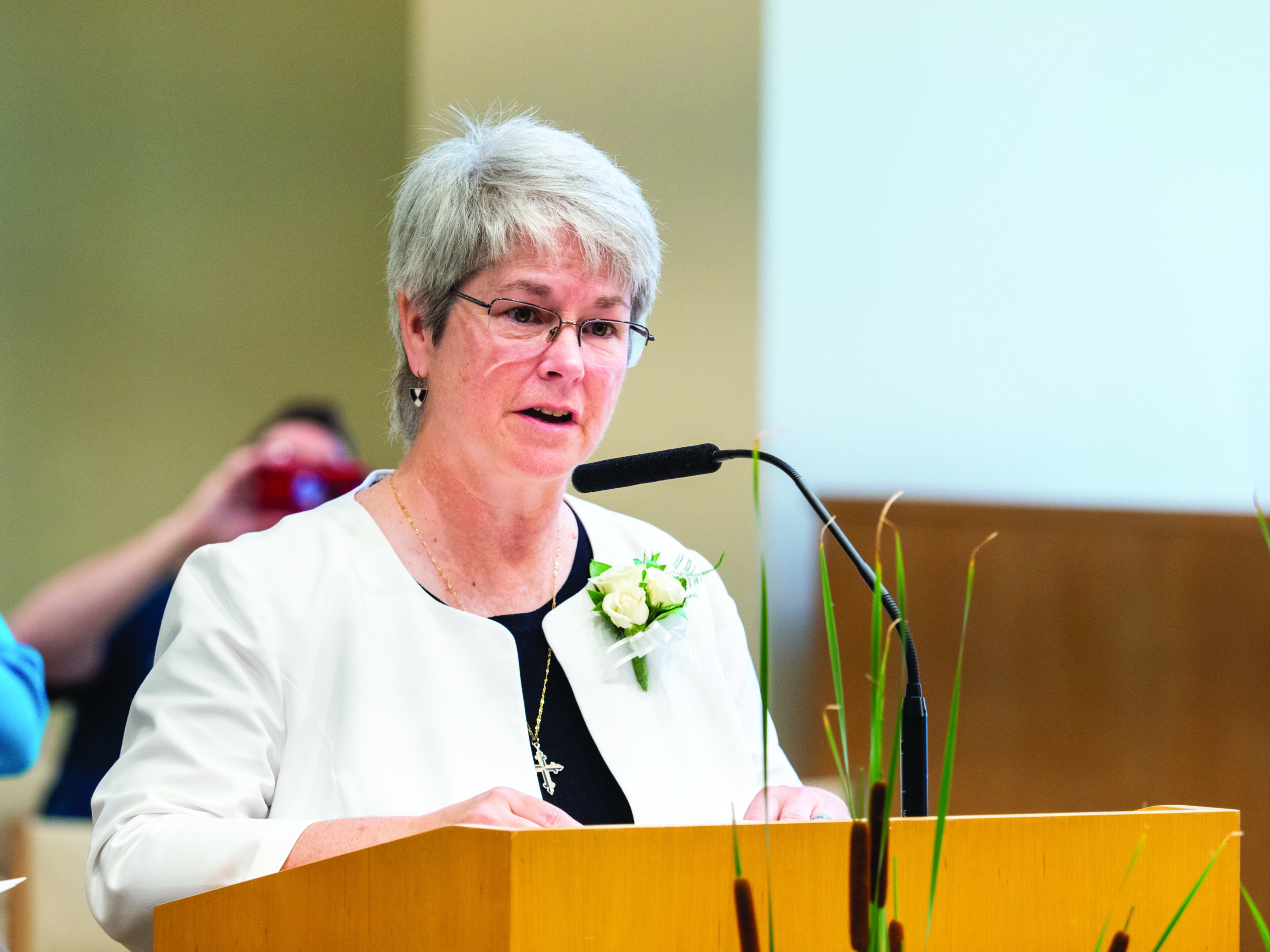
by Megan McElroy, OP
The real heresy is that people have stopped talking to one another.
– Liam Walsh, OP
The week of September 28 – October 5 I had the opportunity to spend in Cologne, Germany, as a participant in the European Colloquium on Preaching sponsored by the Dominican Preaching Network. Greg Heille, OP, Sara Fairbanks, OP (Adrian), and I were invited representatives from Aquinas Institute of Theology, which is one of the three schools sponsoring the Dominican Preaching Network.
The theme of the colloquium was Sacra Praedicatio: Our Challenge in a Fragile Europe. The keynote presenters were Mrs. Annette Schavan, the former German Ambassador to the Holy See, and fr. Timothy Radcliffe, the former Master of the Order. Both presenters situated their talks in the reality of Europe: Brexit, populist parties, Islamaphobia and anti-Semitism, wealth inequalities, and a loss of confidence in institutions. Annette Schavan’s presentation, Europe Needs a Change of Perspective, emphasized that the European Union “was a victory for peace 61 years ago.” Recognizing the move towards more nationalism and that such nationalism could break up the European Union, she noted, “Peace is not a natural state. Every generation has to find ways to stabilize peace.”
In his presentation, “Being a Sacra Praedicatio: What Does It Mean for the Dominican Family,” Timothy noted that we as a church, given the sexual abuse crisis, are in the greatest crisis since the Reformation. He recommended that the gift the Dominican Family has to offer Europe and the Church is the gift of friendship as is evidenced by the friendships that are such a part of our history: Jordan of Saxony and Diana d’Andalo and Catherine of Siena and Raymond of Capua are classic examples. Timothy suggested that we learn such friendship by joining in the Friendship of God. This Friendship is the life of God in the Trinity and is discovered in spending time (even wasting time) with the O/other, knowing what the O/other enjoys, and learning to read beyond the masks of the other.
Both speakers also addressed the way conversation has influenced the reality of Europe. Annette Schavan spoke of the “brutalization of language” and that “language creates reality,” noting that the way we speak to, of, about, and with one another creates the way we live with one another. Sadly, people have become more brutal in their conversation, creating division and fear. Timothy spoke of the “crisis of conversation.” The crisis is evident in public discourse and in one-on-one engagement. Not only is there a crisis in the way we talk with one another, Timothy quoted Liam Walsh, OP, who said, “The real heresy is that people have stopped talking to one another.”
Aside from the keynote and workshop presentations, the colloquium also included two evening excursions. The first was to the Cologne Cathedral for a private tour. Our second excursion was to San Andreas Church, in the shadows of the cathedral, where St. Albert the Great is buried. We celebrated Mass and then processed to his tomb in the crypt where we prayed together and were given time to pray privately. Albertus Magnus taught in Cologne 1248-1254 and again in 1257-1260, after serving as Provincial of Germany and before being appointed Bishop of Regensburg. The conference concluded that same evening with a delicious dinner at a traditional German beer hall.
Throughout the days of the colloquium and many times since, I have found myself thinking that the messages of the keynote speakers are just as fitting for us in the United States. We, too, are living in a fragile nation where a crisis of conversation has entered into our politics, our ways of communicating with or about one another, and in some ways even in our church. Like Europe, our language has become brutal. Our invitation as preachers and as Christians is to speak with the language of Love in a way that taps into people’s experiences and helps them to know this Love in a profound way. Such language would go a long way in healing the heart and soul of our own nation.

